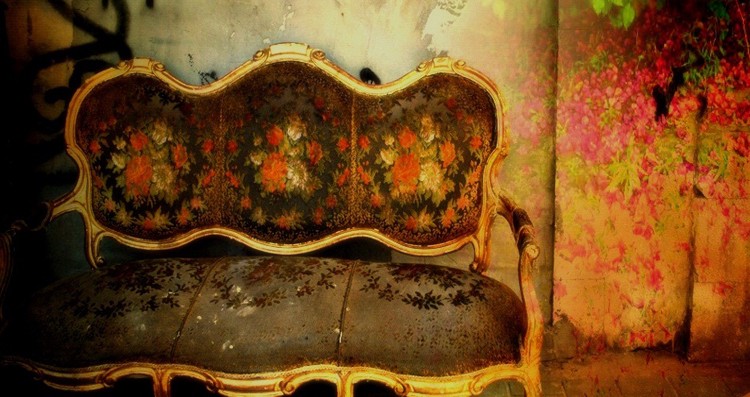Books & Culture
REVIEW: Leaving the Atocha Station by Ben Lerner

Leaving the Atocha Station
Ben Lerner
186 pp / $15
Leaving the Atocha Station, Ben Lerner’s first novel, features a narrative voice both detached and almost painfully forthcoming, photographs with odd and often humorous captions, and hash, a surprising amount of hash. The novel is narrated by Adam Gordon, a young American poet on fellowship in Madrid, where he’s supposedly researching a project on the literary legacy of the Spanish Civil War. The first phase of his research consists of spending mornings at the Prado, writing in the park, fantasizing about becoming fluent in Spanish by mastering Don Quixote, watching online videos of “terrible things,” smoking the aforementioned hash and re-reading John Ashbery.
All the while Adam struggles with a pervasive sense of fraudulence, or a fear of being exposed. He tries to hide this fraudulence by lying to manipulate the perceptions of others and communicating in discreet morsels of insight that suggest a profound interior life. His deliberate, analytical voice makes his confessions more humorous and unsettling. Early on he says that his mother is dead to gain the sympathy of an attractive woman, and implies that his father is a heartless tyrant. (“As I said this, I thought of my dad patiently trying to get a spider to crawl from the carpet onto a piece of paper so he could escort it safely from house to yard.”) For much of the novel he takes advantage of his poor Spanish, allowing others to assign “a plurality of possible profound meanings” to his gestures and fragmented speech. On a trip to Granada with Isabel, a woman he’s dating, Adam pretends to take notes so she’ll imagine he’s preoccupied with brilliant observations. That his fear of being seen as a fraud causes him to behave with extraordinary fraudulence accounts for much of the humor in this (often very funny) novel.
Adam’s insecurities partially stem from his doubts about poetry and art in general. He worries that he’s incapable of having a “profound experience of art” and doubts that anyone really does, suspecting it depends on the suggestion of profound possibilities that characterizes his interactions with others: “I tended to find lines of poetry beautiful only when I encountered them quoted in prose, in the essays my professors had assigned in college, where the lines breaks were replaced with slashes, so that what was communicated was less a particular poem than the echo of poetic possibility.” The irony is that his ruminations on the experience of profundity in art — just like his accounts of trying to hide his absence of profundity from others — are themselves profound. Adam doesn’t find profundity at the level of direct experience, but one step removed, at what Ashbery calls the “experience of experience.”
Adam’s sense of detachment also owes to the conditions of his time and place: he overmedicates with prescription pills and spends a lot of time online. In fact, one of the most impressive things about Atocha Station is Lerner’s depiction of what it’s like to be a young artist in the early 21st century, when technology mediates our experience to an unprecedented degree. At the end of Chapter 2, Adam has an instant messenger conversation with Cyrus, a friend on vacation in Mexico. Cyrus tells him the story of a disaster on a camping trip. The story’s suspense and emotional impact are filtered through the medium, with its trivializing conventions (lowercase letters, shorthand and fragments, interruptions to ask “you still there?”). Because of this seeming disconnect between form and content, as well as Lerner’s masterful use of online dialogue, it’s among the most compelling scenes in the book.

Later Adam witnesses the aftermath of the 2004 Madrid train bombings. Already removed by his status as an American in Spain, he experiences the disaster as a confusion of emergency vehicles and chanting crowds. He repeatedly turns to the internet to “read about the unfolding events of which I’d failed to form a part,” and to view the photographs of helicopters and crowds he’s imagined from the street. At one point he opens three windows on his laptop, each a different news website, and refreshes them compulsively, watching the number of the dead increase with each click. The articles and photographs start to replace Adam’s own memories of the bombings, until he can’t remember what he experienced directly.
Everything in Atocha Station — art, relationships, even disaster — is subject to mediation and manipulation: “You can see all this from a great height and zoom out until it is no longer visible or you can zoom in on the writing hand or the face of the dead, zoom in until it’s no longer a face. Or you can click on something and drag it. You can adjust the color or you can make it black-and-white.” In the end, however, Adam’s narrative represents the profound possibilities of art and authenticity that elude him for much of the book. The result is a hilarious and insightful account of an artist’s development in the digital age.
***
— Christopher Griffith lives and writes in Brooklyn.









